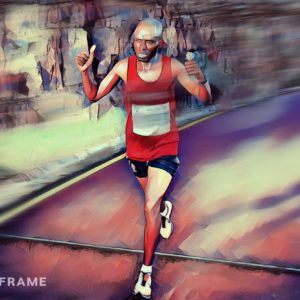Thulani Sibisi is still bravely beating the odds
The veteran marathon runner is battling prostate cancer and has been for many years. But in a reflection of his entire life and running career, he is not taking it lying down.
Author:
17 November 2021
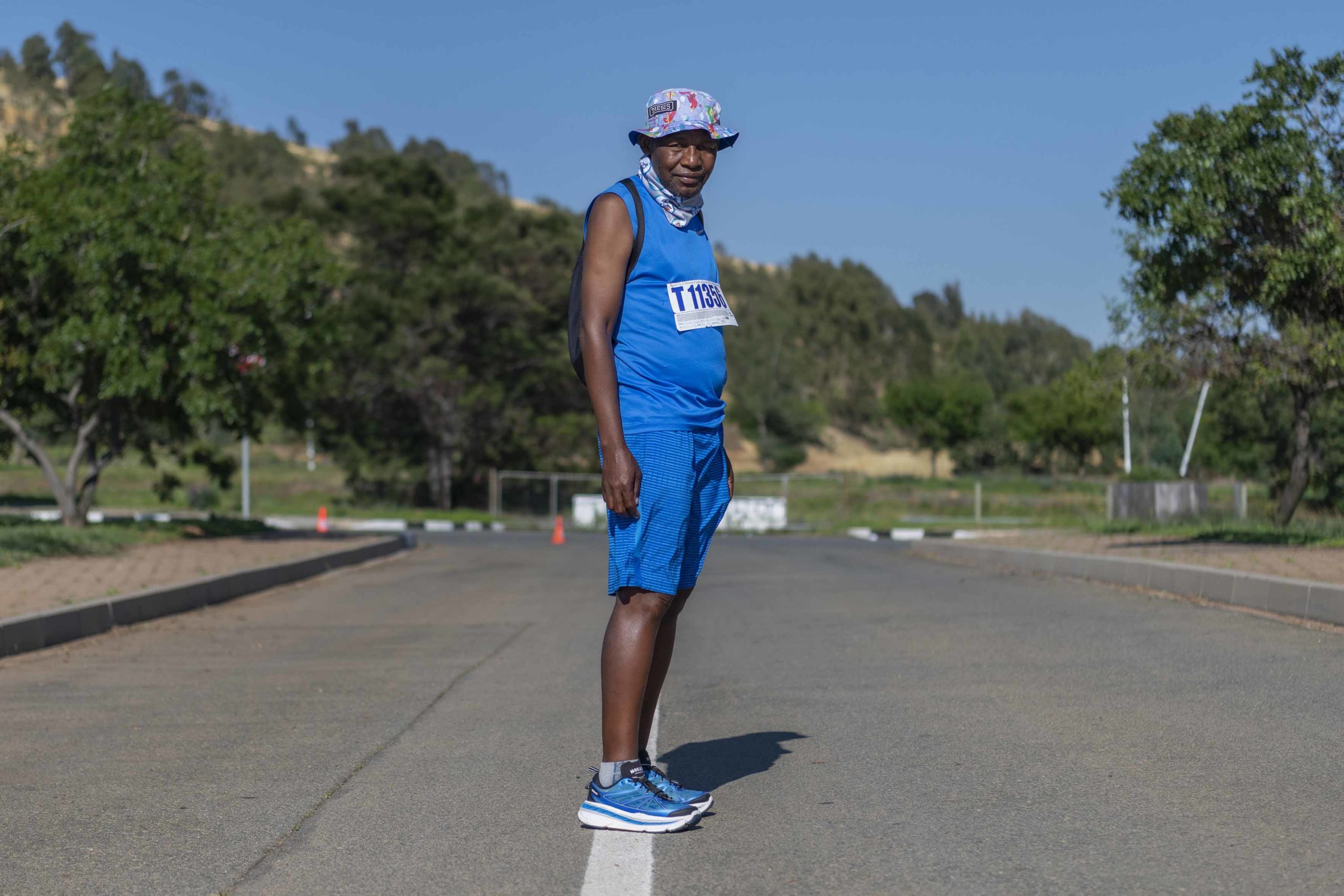
Thulani Sibisi turned 69 on Friday 22 October. It was a great day for the former Two Oceans Marathon champion as he spent it with friends, having begun the day with a “run” alongside members of the Diepkloof Athletics Club in Soweto.
But no sooner had he celebrated his special day when Sibisi was reminded that he actually shouldn’t be alive. “I enjoyed my birthday. It was a very good day. But Saturday was bad. I got very sick. It was as though the disease was reminding me that it has got me by the balls, literally.”
Sibisi has been battling prostate cancer for nearly a decade now, and he is no longer the fit athlete he once was. Disheartening as his situation is, Sibisi does not mope around feeling sorry for himself. Instead, he has made it his business to inform men of the dangers of the killer disease.
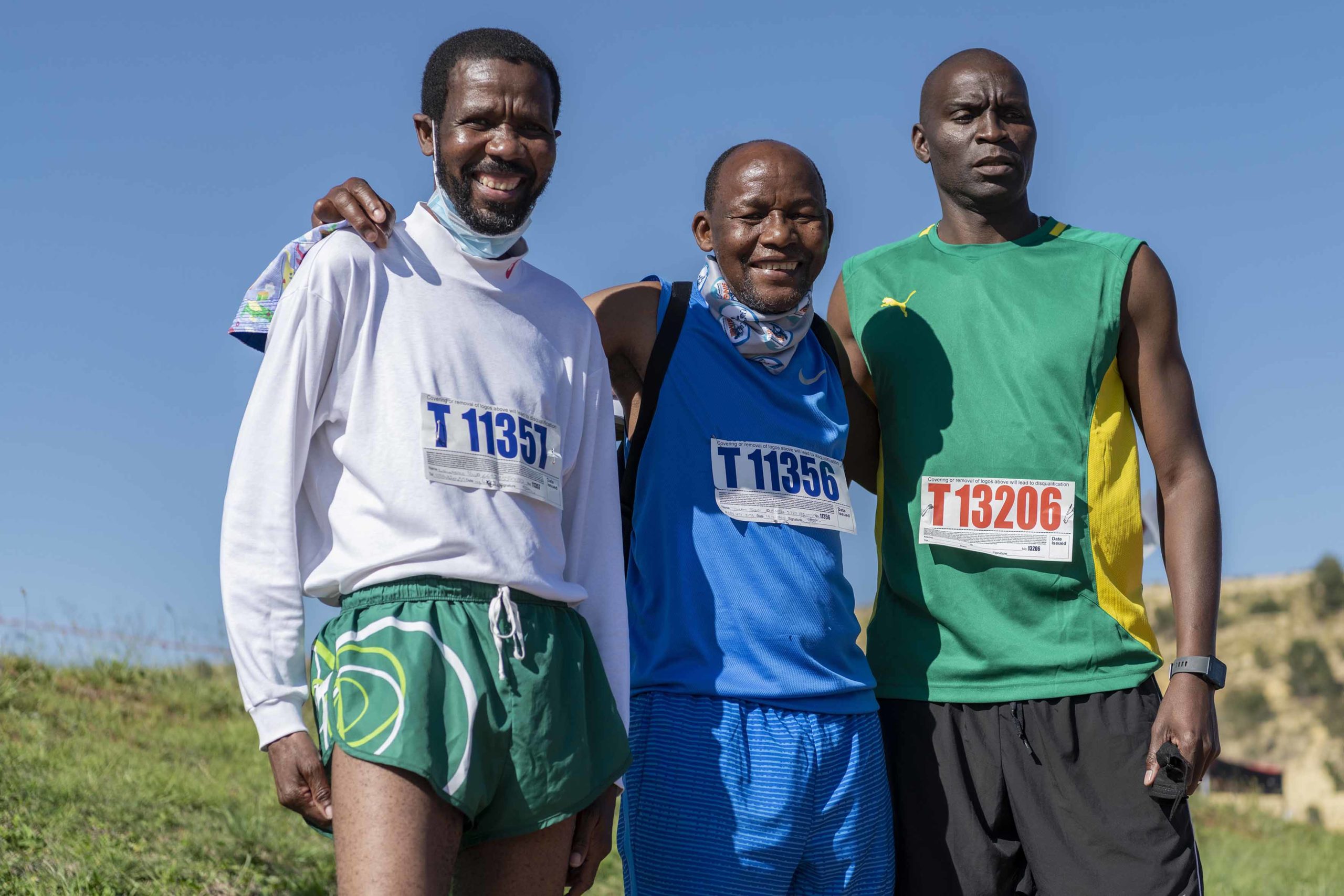
A few weeks before his birthday, members of the same club embarked on a morning run from Diepkloof Hall to Sibisi’s home in Orlando West. They were dressed in suits in what they hoped would be an annual event to not only “honour this legend, but to also help raise awareness about prostate cancer”.
Welcoming the runners, Sibisi spoke candidly about his struggle with cancer and encouraged the men to get tested, telling them “don’t be afraid to go take the finger” – in reference to the digital rectal examination – because “it is very effective”.
He vividly remembers the time he was diagnosed and says he has decided to speak up because he believes early detection could save many lives. “One thing I know about sportsmen is that we generally don’t think we can get diseases because we are fit. And even when we feel unwell, sometimes we think we can run off whatever it is.
“I used to have problems urinating, but I didn’t think too much of it until it got severe. It took my collapse on 29 September in 2012 for me to be examined. Before that I’d have this burning sensation at night, or when I’d go to pee I’d think I had finished only for droplets to come out a little later, and sometimes it would be very sore.”
Confronting the truth
The day he collapsed, Sibisi had been on a training run then gone to work, where the lights went out. Granted, his competitive years were long behind him, but he still considered himself fit.
He recalls how he felt following his positive diagnosis, which also brought the news that the cancer was at stage three and fast beginning to spread throughout his body. “It was like I’d had a car accident. You know when you’ve been in an accident, it feels like you are dreaming. You ask yourself so many questions: How did this happen? How did I not see that coming?”
That he did not succumb to depression, which can complicate treatment and even hasten death, is because he was quick to accept he had cancer, he says. “Trauma is what kills most people. The shock of being diagnosed hits most so hard they just can’t deal with the disease. And there’s also denial. It is almost like being laid off from work, because you just don’t seem to see the future after that. What helped me was immediate disclosure.
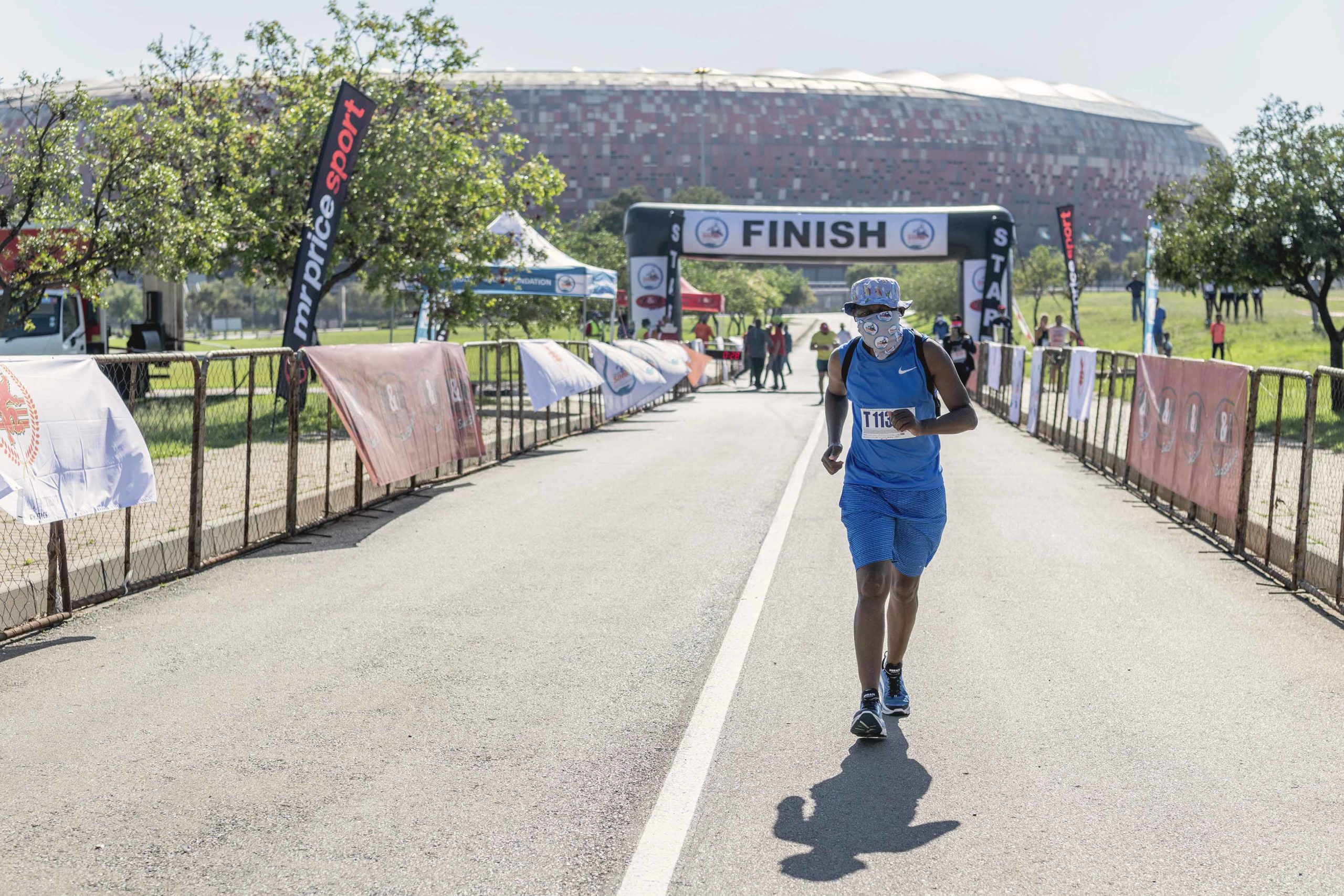
“I didn’t keep this to myself … I told just about everyone in my circle and the news spread very quickly to the people I used to run with, and they really came through for me. And most of those have been white people.”
Sibisi, born and bred in abject poverty in KwaZulu-Natal, grew up in the time of apartheid and experienced it first-hand when he moved to Johannesburg. “The police used to arrest me during my runs in Johannesburg [for not having his passbook],” he recalls. “There’s a spot on Bompas Road near the Wanderers Club where I was arrested nine times.”
Such experiences have made many Black South Africans angry towards their white counterparts, but Sibisi does not harbour any hatred.
“I know that most of our people believe whites are bad, and with good reason too. But to be honest, it has always been white people who came through for me. I am still alive largely because of the support I’ve received from the whites. When I got diagnosed, they were the ones who showed care and moved mountains to see to it that I got help. Bob de la Motte told everyone that I used to run with and the likes of Johnny Halberstadt, runners from Rockies in Canada and some from Australia, as well as the guys at the Two Oceans Marathon, rallied behind me and went all out to support me.”
A reason to fight
In what was a desperate time, Sibisi found himself surrounded by caring men who used to be his adversaries on the road, and that gave him good reason to stand up to the cancer. “Two Oceans asked me what they could do for me, and I said to them please provide me with a platform to tell people about this disease. And ever since they made me their ambassador I’ve been at the race and events to talk. I believe that knowledge will help save many men out there, especially the athletes.”
That he is able to pay for his medication is as a result of the contributions made by some of these former runners. The Soweto Marathon is also helping Sibisi.
“If I had not played a role in the formation of the Soweto Marathon back in 1991, how would I have survived this cancer? If I had not won the Two Oceans Marathon, do you think I’d be getting the kind of help I am receiving from them and the other athletes? That win in 1986 helped make me who I am, and partly because of it I have been able to survive this cancer for as long as I have.”
Related article:
And what a win it was, Sibisi getting home in 3:09:30 to beat Mark Page by almost four minutes into second position. That glorious day is permanently etched in his memory and a smile envelops his scrawny face as he recalls it.
“They didn’t think I’d win. At the start, one of the runners asked me what I was going for and when I told him ‘a win’ he laughed at me. But I was fit and I knew I could win. During the race, I overtook some of the top runners. But when they caught up and overtook me and made fun of me, I didn’t give up and I went after them and left them eating my dust. It was beautiful to win that race.”
His first leg-up
Sibisi could get to the race owing to the help of his employer. “I moved to Johannesburg after dropping out of matric, because it was hard travelling to school for long distances and my parents were just too poor. I had to get a job to help out. I worked for Johann Rupert, but I didn’t know who he was. It was only when people spoke about his father Anton that I realised who I was working for.”
One time when Sibisi finished in the top 10 of a race, Rupert recognised his potential and instructed him to go to a store in town. “He’d seen my name mentioned in the Rand Daily Mail that I’d done well and told me to go to 130 Market Street. I got there and found it was an adidas shop where Joe Frickleton, the famous football coach, worked. He referred me to Johnny Halberstadt, whom I knew as a top runner from a distance.”
Sibisi realised he was talented in running, but working in Westcliff and living in Soweto was taking its toll and affecting his running. He generally left home in the wee hours only to return after sunset, leaving him no time to train.
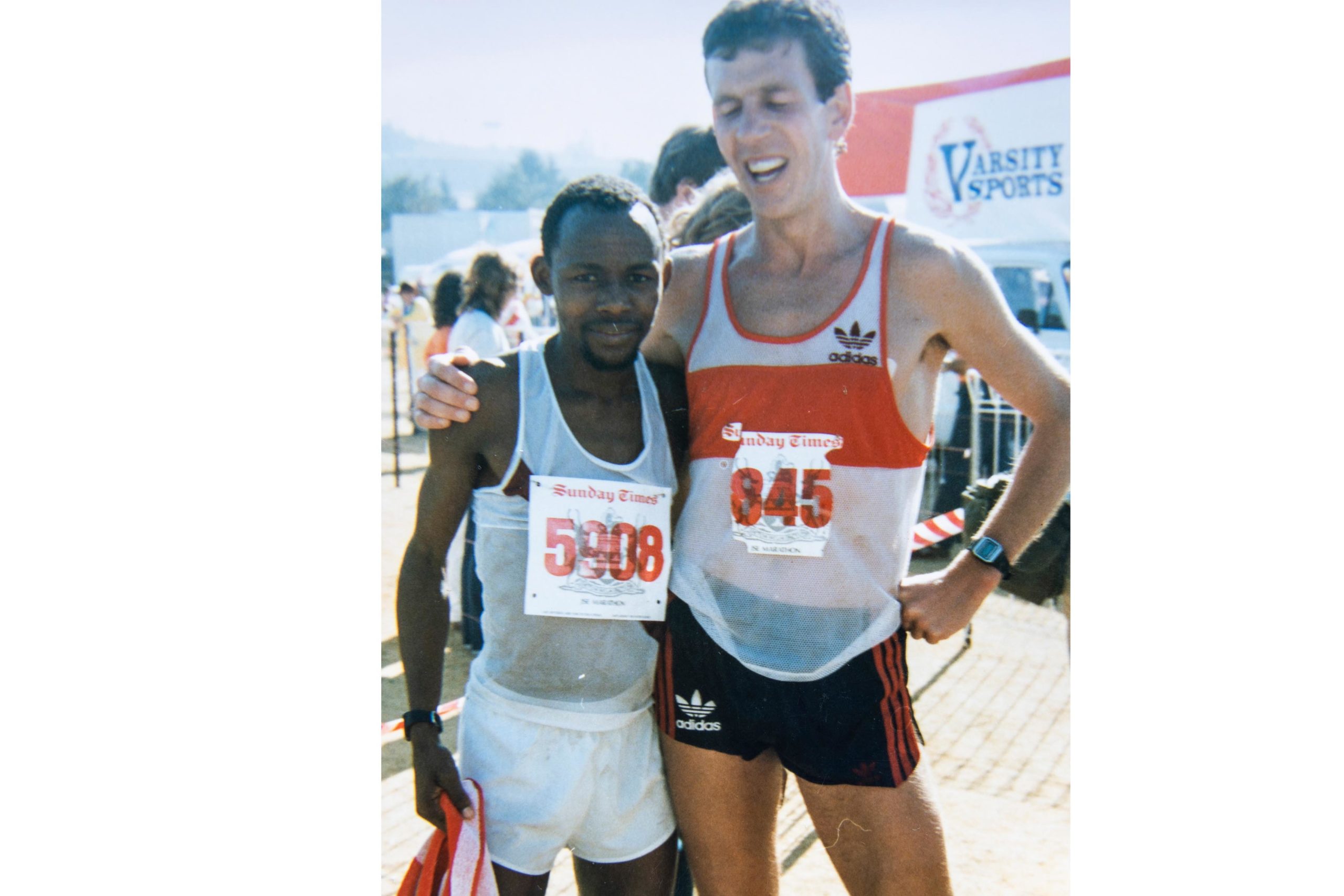
“I quit working for Johann in 1983 and was jobless for a month, but then got a job at the Frontrunner sports shop. And this was great because they gave me time to train as well as some Saturdays off to compete in races.”
Soon Sibisi was making great progress and in 1985 he finished as the runner-up to Bob de la Motte in what is today known as the City to City Marathon, between Centurion and Germiston. “That gave me the belief that I could win a big race and I picked Two Oceans.”
But his delight was soon soured by the apartheid police. “I was on my way to an RAC [Rand Athletic Club] function at the Wanderers Club to celebrate our success in the City to City when the police arrested me. That episode really made me bitter and I decided to stop running. But Bob heard of this and wrote a scathing article about this and convinced me not to quit.”
Still a hero
The racist apartheid laws almost robbed the country of one of its most inspirational runners whose influence goes beyond the road. It’s telling of where the money and influence lay at the time that white people were among the leading role players in Sibisi’s running career. The sport suffered, and still does, from a lack of strong financial support from the government and corporates, forcing many runners to rely on handouts or benevolence.
Sibisi returned to the road and finished second at the Cape Peninsula Marathon before setting his sights on Two Oceans glory. But how would he get to Cape Town?
“I’d been to Cape Town by bus before and I knew just how tiring it was. I knew that if I was to give myself a chance to win the race, I had to fly there. But I didn’t have enough money. So I called Johann to ask him to buy me a plane ticket. His secretary told me that Johann said he would only buy me the ticket if I was going to win the race. I told her I would.”
And win he did. That victory in 1986 catapulted Sibisi into a South African running legend. And he continues to live on that success – the battle with prostate cancer notwithstanding.
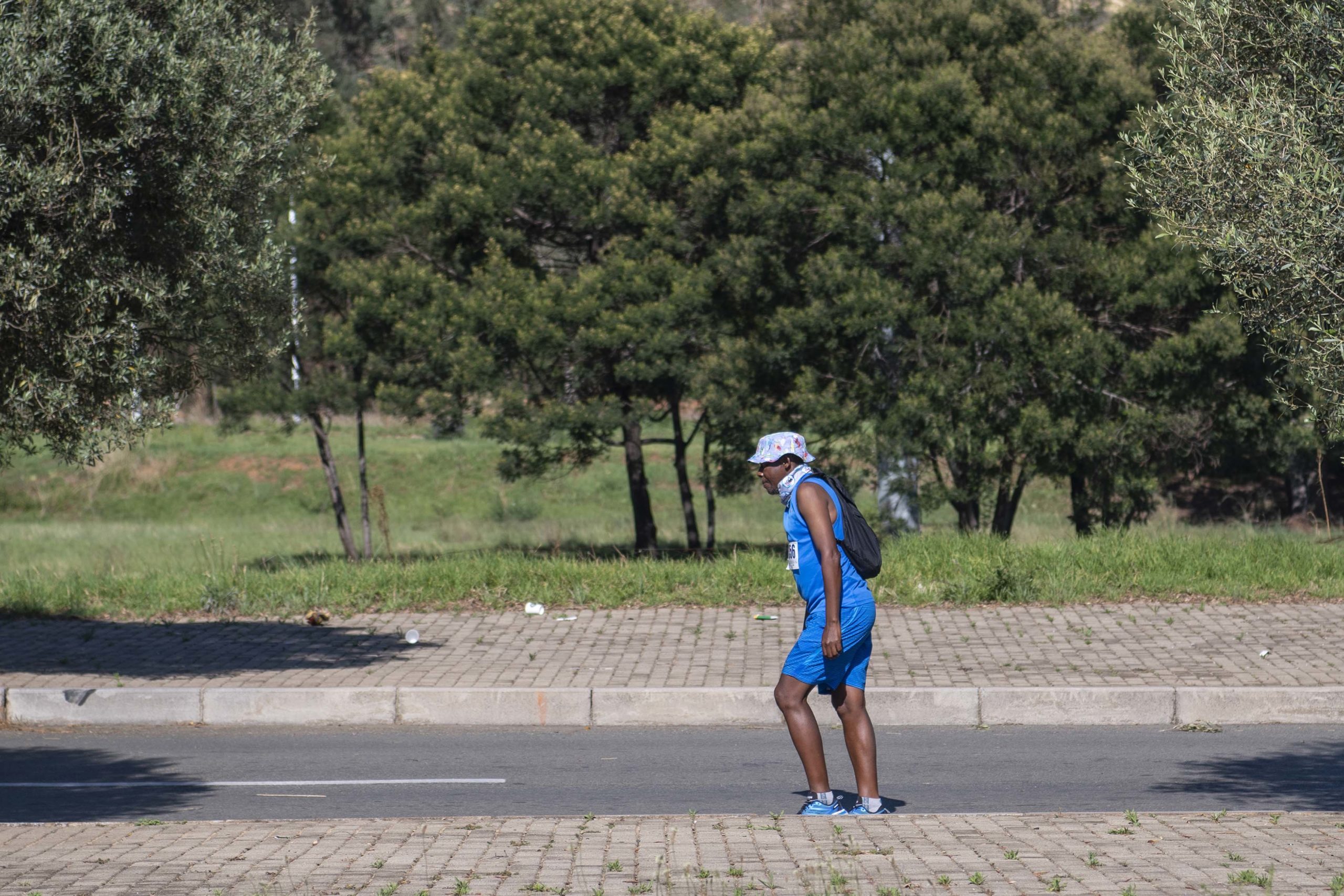
“I believe if it was detected much earlier I’d still be running. But now, the treatment I am taking is very severe. And they’ve removed some parts and now I no longer have testosterone. When you take that from a man, forget it. I’ve got no strength at all, no sexual drive.
“I can tell you that if Caster [Semenya, the 800m Olympic champion who has been banned from racing the distance owing to her high testosterone levels] goes for that surgery they say she must do, she would never run. So for me, the decision she made was the right one.”
On that Friday of his birthday, Sibisi was with the Diepkloof runners at the start of the run. But his was no more than a shuffle. He posted a picture of himself wearing just a Speedo and holding his grandson’s son, who welcomed him at the finish line.
“It is very frustrating that I can no longer run, or even jog. So it is always good when these youngsters organise these kinds of runs for me. And [this] one was even more special because it is on my birthday.”

